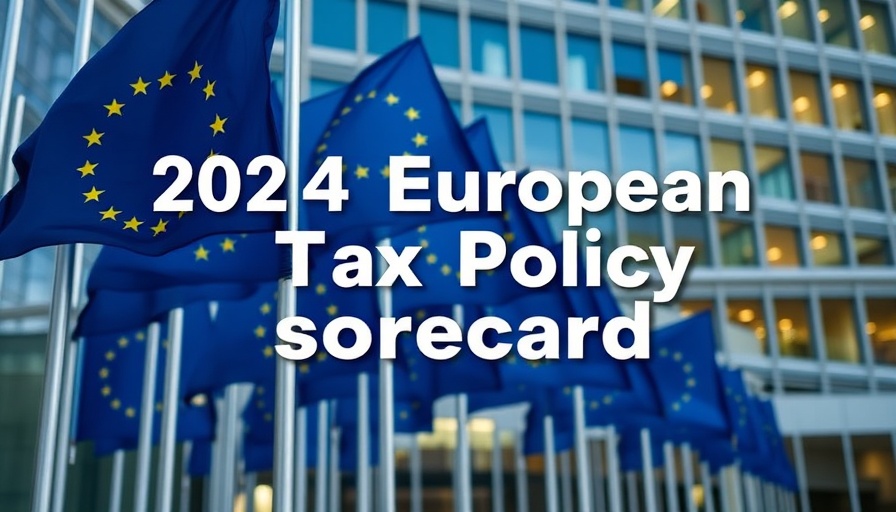
Understanding the 2024 European Tax Policy Scorecard
The 2024 European Tax Policy Scorecard (ETPS) is a critical tool for understanding the competitive tax landscape among EU countries. It measures tax systems based on competitiveness and neutrality, offering a clear view of how different nations structure their tax codes and their impact on economic performance. At its core, a well-structured tax code should facilitate compliance, promote economic growth, and ensure sufficient revenue for governmental priorities. In contrast, a poor tax structure can distort economic decisions and harm domestic economies.
The Importance of Competitiveness and Neutrality in Taxation
A competitive tax system keeps marginal tax rates low, attracting investment by allowing businesses to maximize after-tax returns. In today's mobile capital markets, companies can relocate to jurisdictions with favorable tax codes. The OECD has pointed out that corporate taxes are notably detrimental to economic growth compared to personal income or consumption taxes. Thus, as governments seek to bolster their economies following the pandemic and ongoing crises, focusing on tax competitiveness is paramount.
The concept of neutrality goes beyond low rates; it emphasizes minimizing economic distortions. A neutral tax system does not favor impermanent economic activities over enduring ones, which fosters a healthier investment landscape. As tax laws become more complex, achieving neutrality becomes increasingly challenging, necessitating nuanced regulations that apply uniformly across sectors.
Who Are the Winners and Losers in the 2024 Rankings?
For the 11th consecutive year, Estonia has claimed the top position in the ETPS, thanks to its 20% flat tax rate on both corporate and individual income, applied only to distributed profits. This system encourages reinvestment over distribution, allowing businesses to grow. Other countries like Cyprus and Switzerland also rank highly due to their favorable tax environments, characterized by low corporate tax rates and supportive tax structures for capital gains and investment.
On the contrary, Italy remains at the bottom of the rankings, criticized for its numerous distortionary property taxes and a narrow VAT base that limits taxable consumption. France closely follows Italy, struggling with high labor taxation and numerous specific levies that impair the competitiveness of its tax system.
Notable Shifts in the Tax Landscape
Minor reforms across the EU have led to noteworthy changes in rankings. For example, the UK has improved its standing due in part to permanent measures allowing full expensing for plants and equipment, making it more attractive for investments. In contrast, the Czech Republic's recent increase in corporate tax rates to 21% has seen it drop in the rankings, exposing the delicate balance policymakers must maintain when altering tax structures.
The Future of Europe’s Tax Policies: Trends and Predictions
As EU member states continue to grapple with post-pandemic recovery and the economic impact of geopolitical tensions, tax policy will play a vital role in shaping economic resilience and growth. Policymakers must ensure that tax systems remain competitive while also addressing the needs for public revenue in funding crucial programs like green transitions and crucial social infrastructure.
Looking forward, there’s an anticipation of developing harmonized tax rules aimed at combating tax avoidance, particularly in the context of multinational corporations moving profits across borders. The recent OECD developments, including a proposed global minimum tax rate, could lead to significant shifts in tax strategies and compliance across nations.
Conclusion: The Call for a Balanced Approach
The insights garnered from the Annual European Tax Policy Scorecard are crucial for CPAs, small and medium businesses, and policymakers to navigate the complex tax landscape effectively. A balanced approach is essential—ensuring that tax codes foster investment and growth while securing adequate revenue for public services. As countries strive to improve their economic standing, continuous evaluation and reform of tax policies will undoubtedly shape the future landscape of business in Europe.
 Add Row
Add Row  Add
Add 




Write A Comment